Search
Remove Ads
Advertisement
Summary
Loading AI-generated summary based on World History Encyclopedia articles ...
Search Results

Article
Daily Life in Ancient China
Daily life in ancient China changed through the centuries but reflected the values of the presence of gods and one's ancestors in almost every time period. Villages like Banpo show evidence of a matriarchal society, where there was a priestly...
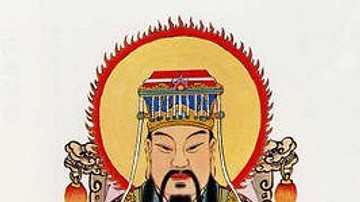
Definition
Jade Emperor
The Supreme August Jade Emperor is the supreme deity of Chinese tradition and is otherwise known as Yuhuang Shangdi (Yu-huang Shang-ti), Yudi (Yu Ti) or Mr. Heaven (Lao-t'ien ye). He governs the cosmos and resides in a magnificent palace...
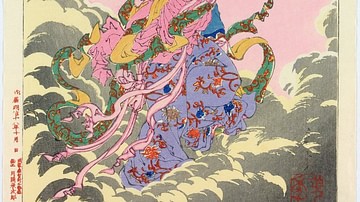
Article
Most Popular Gods & Goddesses of Ancient China
There were over 200 gods and goddesses worshipped throughout ancient China, but if one were to count every deity or spirit, the number would be over 1,000. Each town, village, city, field, farm, and sometimes even separate plot in a graveyard...
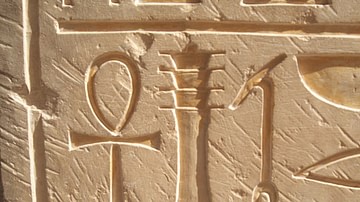
Article
Ancient Egyptian Symbols
Religion in ancient Egypt was fully integrated into the people's daily lives. The gods were present at one's birth, throughout one's life, in the transition from earthly life to the eternal, and continued their care for the soul in the afterlife...
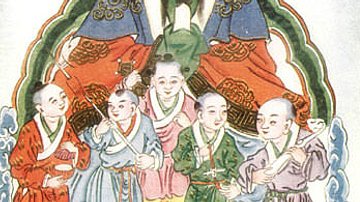
Image
Zao-Shen, the Kitchen God
Zao-Shen, the Kitchen God as depicted in Myths & Legends of China by Werner, E. T. C. (1922). New York: George G. Harrap & Co. Ltd.
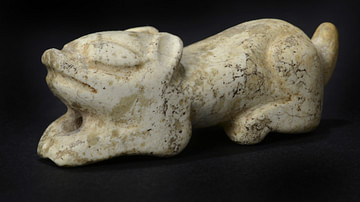
Article
Liangzhu Culture Jade
Jade artifacts and icons are almost synonymous with the Chinese culture going back thousands of years. Jade (nephrite) was first worked into recognizable objects c. 6000 BCE during the period of the Houli Culture (c. 6500 - c. 5500 BCE...

Article
Religion in Ancient China
Religious practices in ancient China go back over 7,000 years. Long before the philosophical and spiritual teachings of Confucius and Lao-Tzu developed or before the teachings of the Buddha came to China, the people worshipped personifications...
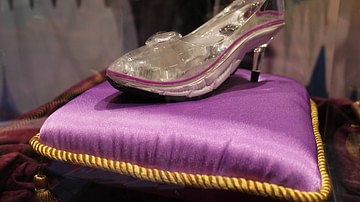
Article
The Egyptian Cinderella Story Debunked
The story of Cinderella is one of the most popular in the world. In the west, it has enjoyed a continuous following since its revision and publication by Charles Perrault in 1697 CE but the tale of the young heroine, unjustly forced into...
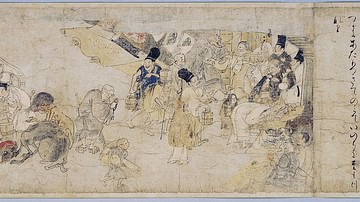
Article
Ghosts in Ancient China
Ghost stories were the earliest form of literature in ancient China. They were almost certainly part of a very old oral tradition before writing developed during the Shang Dynasty (1600 - 1046 BCE) and they continue to be popular in China...
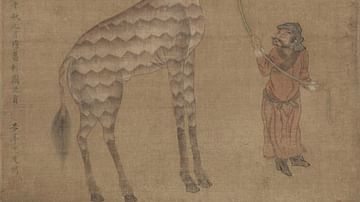
Image
Giraffe Tribute to Emperor Yongle
A silk scroll painting by Shen Du depicting a giraffe given in tribute by King Saif Al-Din Hamzah Shah of Bengal to the Yongle Emperor (r. 1403-1424 CE) of China's Ming Dynasty. The tribute was one of the many collected by Admiral Zheng He...